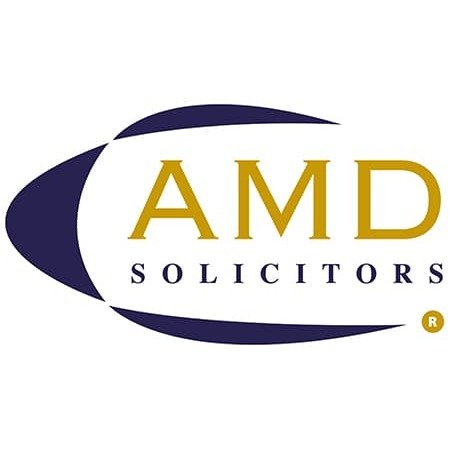Best Copyright Lawyers in Bristol
Share your needs with us, get contacted by law firms.
Free. Takes 2 min.
List of the best lawyers in Bristol, United Kingdom
United Kingdom Copyright Legal Questions answered by Lawyers
Browse our 1 legal question about Copyright in United Kingdom and read the lawyer answers, or ask your own questions for free.
- A website published my thesis as their work
- I finished my master degree In 2013 and I found a writing service for students website that did minor changes to my thesis and published as their own in 2017
-
Lawyer answer by Δικηγορικό Γραφείο Ηλία Τζερεμέ - Ilias Tzeremes Law Office
According to Greek Intellectual Property Law, you shall claim a huge compensation, because only the author maintains the right to manage his/her thesis. Moreover, braking Copyright constitutes a felony, punishable with up to 15 years of imprisonment
Read full answer
About Copyright Law in Bristol, United Kingdom
Copyright law in the United Kingdom, including Bristol, is primarily governed by the Copyright, Designs and Patents Act 1988. This law protects original works of authorship, including, but not limited to literature, music, drama, art, and cinematography. Protection is automatic and usually lasts for the lifetime of the author plus 70 years after their death. The law helps creators control how their work is used, copied, or adapted, providing them with certain rights, known as 'economic rights', to enable them to commercially exploit their works.
Why You May Need a Lawyer
People often need a lawyer for various complex areas of copyright law. You may require legal assistance to draft or review license agreements, navigate disputes over copyright infringement, understand Fair Use provisions, or counsel on what elements of your work are subject to copyright protection. A lawyer may also be necessary to register works with relevant bodies, or provide advice about potential litigation arising from copyright breaches.
Local Laws Overview
The key aspects of copyright law in Bristol mirror the UK Copyright, Designs and Patents Act 1988. Therefore, those are the legal provisions that provide protection for works of authorship. The law affords copyright owners exclusive rights to reproduce, distribute, perform, display, or license their work. It also contains provisions for licensing, assignment, moral rights, and exceptions that enable certain limited uses of copyrighted works without the owner's permission.
Frequently Asked Questions
1. Do I have to register my work to get copyright protection?
No. Copyright protection is automatic in the UK. As soon as you have put your creation in a material form, like writing or recording, your work will be protected by copyright.
2. How long does copyright protection last?
Generally, copyright protection lasts for the lifetime of the author plus 70 years after their death. This duration can vary depending on the type of work and other factors.
3. What should I do if my copyright is infringed?
If you suspect that your copyright-protected work has been infringed, it's advisable to consult a copyright lawyer who can best guide you on possible legal actions including litigation or settlement.
4. What is Fair Use?
Fair Use is a legal doctrine that promotes freedom of expression by permitting the unlicensed use of copyright-protected works in certain circumstances, such as criticism, comment, news reporting, teaching, scholarship, and research.
5. Can I transfer my copyright to someone else?
Yes, UK law allows for the assignment or licensing of copyright. However, the assignment must be in writing and signed by the assignor, and licensing agreements should be clear about the scope of the license and royalties.
Additional Resources
To find further help, consider reaching out to the Intellectual Property Office (IPO), which can provide additional information and resources on copyright law. Other helpful resources include the UK's Copyright Hub, and legal advice clinics which sometimes offer free consultation services.
Next Steps
If you need legal assistance, the ideal first step is to find a reputable copyright lawyer in Bristol. They can help clarify the law, advise you on your specific situation, and take any necessary actions to protect or enforce your intellectual property rights.
Lawzana helps you find the best lawyers and law firms in Bristol through a curated and pre-screened list of qualified legal professionals. Our platform offers rankings and detailed profiles of attorneys and law firms, allowing you to compare based on practice areas, including Copyright, experience, and client feedback.
Each profile includes a description of the firm's areas of practice, client reviews, team members and partners, year of establishment, spoken languages, office locations, contact information, social media presence, and any published articles or resources. Most firms on our platform speak English and are experienced in both local and international legal matters.
Get a quote from top-rated law firms in Bristol, United Kingdom — quickly, securely, and without unnecessary hassle.
Disclaimer:
The information provided on this page is for general informational purposes only and does not constitute legal advice. While we strive to ensure the accuracy and relevance of the content, legal information may change over time, and interpretations of the law can vary. You should always consult with a qualified legal professional for advice specific to your situation.
We disclaim all liability for actions taken or not taken based on the content of this page. If you believe any information is incorrect or outdated, please contact us, and we will review and update it where appropriate.









